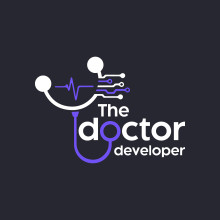Course description
Emergency medicine is a dynamic medical specialty that primarily deals with the prompt evaluation, diagnosis, treatment, and management of a diverse array of acute and urgent medical conditions. This field is uniquely designed to address critical situations that require immediate medical attention, often in hospital emergency departments or urgent care settings.
Key aspects of emergency medicine include:
1. **Rapid Assessment and Triage:**
Emergency physicians are trained to quickly assess and triage patients based on the severity of their conditions. This helps prioritize care, ensuring that those with the most critical conditions receive immediate attention.
2. **Wide Spectrum of Conditions:**
Emergency medicine covers a broad range of medical issues, including trauma, cardiovascular emergencies (such as heart attacks), respiratory distress, neurologic emergencies (such as strokes), infectious diseases, severe allergic reactions, gastrointestinal problems, psychiatric crises, and more.
3. **Multi-System Approach:**
Emergency physicians employ a multi-system approach to evaluate patients comprehensively. They integrate knowledge from various medical specialties to manage a wide variety of conditions effectively.
4. **Resuscitation and Stabilization:**
A significant focus of emergency medicine is resuscitation and stabilization of critically ill or injured patients. This includes advanced cardiac life support (ACLS), advanced trauma life support (ATLS), and other critical care protocols to ensure patients are stabilized and prepared for further evaluation and treatment.
5. **Diagnostic Skills and Imaging:**
Emergency physicians possess strong diagnostic skills to rapidly identify conditions using clinical assessment, laboratory tests, and medical imaging (X-rays, CT scans, ultrasounds, etc.). Quick and accurate diagnosis is crucial for timely intervention.
6. **Procedural Expertise:**
Emergency medicine practitioners are proficient in various medical procedures, such as intubation, central line placement, wound suturing, fracture reduction, and more. These procedures are often performed in high-stress and time-sensitive situations.
7. **Effective Communication and Teamwork:**
Excellent communication and teamwork are vital in emergency medicine. Emergency physicians collaborate closely with nurses, paramedics, radiologists, and specialists to ensure coordinated and efficient care for each patient.
8. **Community Outreach and Disaster Preparedness:**
Emergency medicine professionals are often involved in community education, disaster preparedness, and response to mass casualty incidents. They play a crucial role in planning for and managing emergencies on a larger scale.
In summary, emergency medicine is a specialty that demands quick thinking, adaptability, and a vast knowledge base to handle a wide spectrum of acute medical conditions. Emergency physicians are dedicated to providing immediate, life-saving care, making timely decisions, and coordinating a team of healthcare professionals to ensure the best possible outcomes for their patients.






